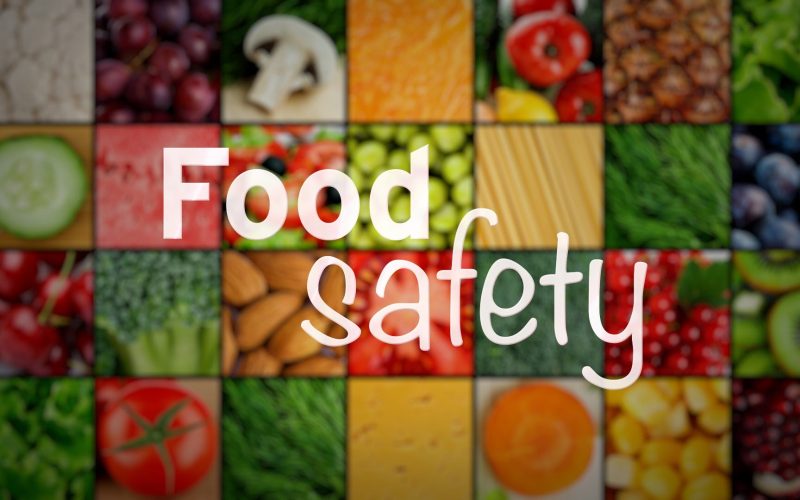Introduction
Imagine eating food that looks great but might not be safe. Scary, right? That’s where food safety audits come into play. In India, the Food Safety and Standards Authority of India (FSSAI) is the top body that makes sure what we eat is clean, safe, and good for our health. One of the best ways FSSAI does this is through third-party audit services. These audits check if food businesses are following safety rules. Let’s explore what these audits are, why they matter, and how they help protect the food we eat every day.
What Is FSSAI?
FSSAI stands for the Food Safety and Standards Authority of India. It is an organization that sets rules and standards for food in India. Any food we buy—whether from a restaurant, grocery store, or online—is supposed to meet the safety standards set by FSSAI.
FSSAI works under the Ministry of Health & Family Welfare. Its goal is to make sure the food we eat is safe, free from harmful ingredients, and prepared under hygienic conditions.
What Is a Third-Party Audit?
A third-party audit is an independent check done by an agency approved by FSSAI. This agency is not part of the food business or the government. Because of this, their review is unbiased and fair. These audits help find out if food businesses are following the required food safety rules.
Why Use a Third-Party?
Using a third party makes the process transparent. It also builds trust with consumers. A food business that passes an audit shows it takes food safety seriously.
Why Are FSSAI Third-Party Audits Important?
1. Ensures Compliance with Safety Rules
India has strict food safety laws. An audit checks whether food businesses are following these laws. If not, they are given suggestions to improve.
2. Improves Food Quality
These audits don’t just check for safety—they also look at quality. They ensure the food served or sold is fresh, clean, and healthy.
3. Builds Consumer Trust
Consumers today are smart. They check for FSSAI marks and safety certificates. A third-party audit tells customers that the food they eat is verified and safe.
4. Reduces Risk of Foodborne Illnesses
Contaminated food can cause serious health problems. Regular audits help reduce the chances of these issues.
5. Boosts Brand Image
A certified and audited food business builds a strong brand image. People prefer eating from places that are known for safety and hygiene.
How Does the FSSAI Third-Party Audit Process Work?
The audit process is well-structured and includes the following steps:
Step 1: Selection of a Recognized Auditing Agency
FSSAI maintains a list of approved third-party auditors. Food businesses must choose one from this list.
Step 2: Pre-Audit Preparation
The business prepares all documents and ensures its premises are clean and well-maintained.
Step 3: Onsite Audit
Auditors visit the food business and check everything—from how food is stored and cooked to how clean the kitchen and staff are.
Step 4: Audit Report and Grading
After the visit, the auditor prepares a detailed report. Based on this, the business is given a grade like A+, A, or B. A+ means excellent safety standards.
Step 5: Corrective Actions (if needed)
If there are any issues, the business is told what to fix. After changes are made, a follow-up visit may happen.
Who Needs FSSAI Third-Party Audits?
These audits are especially important for:
- Restaurants and cafes
- Food processing units
- Cloud kitchens
- Food delivery platforms
- Grocery and retail chains
- Canteens and food courts
- Catering services
Even small food operators can benefit from these audits to improve their safety standards.
Types of FSSAI Audits
FSSAI has defined different types of audits based on risk levels:
- High-Risk Audit: For places dealing with raw meat, dairy, or large food production units.
- Medium-Risk Audit: For mid-size restaurants or bakeries.
- Low-Risk Audit: For small food vendors or packaged food sellers.
Audits are conducted based on the risk category of the food business. High-risk businesses may face more frequent inspections.
Benefits of FSSAI Third-Party Audit Services
Here are some key benefits:
BenefitExplanationBetter Food SafetyMakes sure food is prepared and served safelyLegal ComplianceHelps meet FSSAI laws and avoid penaltiesCompetitive EdgeA good audit grade boosts customer confidenceInternal ImprovementHelps find areas that need better practicesReduces WasteEncourages better food handling, reducing spoilage
Cost of Third-Party Audit in India
The cost depends on the size of the business and the agency hired. On average, it may range between ₹10,000 to ₹50,000. However, this is a small price to pay for ensuring public safety and improving business credibility.
How to Get Started?
- Get FSSAI Registration or License: Before an audit, make sure your food business has a valid FSSAI license.
- Choose a Third-Party Auditor from the FSSAI Portal: Visit https://fssai.gov.in to see the list of approved audit agencies.
- Schedule the Audit: Fix a date for the audit and prepare your staff and facility.
- Follow Recommendations: After the audit, make necessary improvements and aim for a better grade.
Common Mistakes to Avoid
- Not keeping proper hygiene in kitchens or storage areas
- Using expired ingredients
- Poor staff training
- Incomplete documentation
- Not maintaining proper temperature for food items
Avoiding these mistakes can help your business pass audits easily and gain a better rating.
Conclusion
FSSAI third-party audits play a vital role in India’s food safety system. They help food businesses stay compliant, ensure hygiene, and build customer trust. Whether you run a small food stall or a large restaurant chain, these audits guide you to maintain high food safety standards. Not only do they prevent health risks, but they also improve your brand image. In a country where food is a daily celebration, ensuring it’s safe is a shared responsibility. Getting audited is a smart and responsible step every food business should take.












